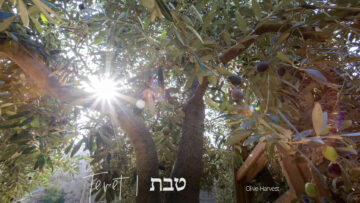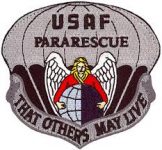Ten Things To Know About Rosh Hashanah
Ten Things To Know About Rosh Hashanah
by Outreach Minister, Virginia Garrett
1. Rosh Hashanah means “head of the year” in Hebrew. The holiday (according to Jewish tradition) occurs on the first day of the Hebrew month of Tishrei and is commonly referred to as the Jewish New Year. Tishrei falls in September or October. However, the true New Year starts on Abiyb (now called Nisan) 1st, which occurs in March or April. According to the Holy Scriptures (Ex. 12:2 and 13:4) referring to Abiyb (also called Nisan in Neh. 2:1 and Es. 3:7): “This month is to you a beginning of months, the first it is to you of the months of the year.” Ex. 12:2, ROSNV. “Today are ye coming forth, in the month Abiyb.” Ex. 13:4, ROSNV. See more at: rosh-hashanah
YaHVaH declared this and there is no mention of the date of the New Year being changed from Abiyb to Tishrei by YaHVaH.
2. Jewish tradition teaches that God created the Earth on the same date as the biblical Feast of Trumpets (Yom Teruah). For this reason, Rosh Hashanah and the Feast of Trumpets (Yom Teruah) are currently observed together.
3. Yom Teruah (which means Day of Blowing) is part of God’s instructions to Israel involving trumpet blowing. Today, Jewish people celebrate Creation and the start of a new year in synagogue services that include special liturgy, prayers and blessings along with 100 blasts of the shofar, the trumpet of the Bible made from a ram’s horn.
4. Rosh Hashanah ushers in the High Holy Days of the Jewish calendar. The Rabbis teach that at Rosh Hashanah, God pronounces a judgment for the coming year upon each of His people. On the Day of Atonement (Yom Kippur in Hebrew), He seals that judgment. The 10 days between these holy days are known as the Days of Awe. According to Jewish tradition, during this time, God may yet alter what was to be an unfavorable decree and grant a good new year. Therefore, Rosh Hashanah begins a time of intense reflection on one’s life and repentance before God in preparation for Yom Kippur (Day of Atonement).
5. A traditional holiday greeting for Rosh Hashanah is Shanah Tovah Umetukah, which means “A good and sweet year!” This is sometimes shortened to simply L’shana Tovah!, meaning “For a good year!”
6. Rosh Hashanah is a rest day, in which God forbids all regular work.
7. Currently, Rosh Hashanah has come to be celebrated on two days. With a calendar system that changed months based on the lunar cycle, the first of a new month wasn’t known until the new moon sighting was reported. A month could have 29 or 30 days, depending on the new moon to signal the start of the next month. Reports could take well into what was supposed to be a rest day. Jewish people in the Diaspora took much longer to learn of the new month’s arrival. So, the religious leaders declared both the day of waiting for the report and the following day as sanctified for observing the holy day.
8. Challah is the special, braided bread of Shabbat. Typically, challah bread is braided in a traditional loaf shape. On Rosh Hashanah, we shape the braided dough into a round loaf to symbolize the cyclical nature of one year leading into another. Some also consider it symbolic of a crown, highlighting our commitment to crown the Lord as King of our lives.
9. The most traditional food associated with Rosh Hashanah is honey. The sweetness symbolizes the hope of a sweet new year. Apples dipped in honey and honey cakes are customary treats.
10. Messianic Jewish Believers celebrate Rosh Hashanah/Yom Teruah with an additional spiritual element in mind. Like the other Feasts God commanded of Israel, Yom Teruah contains a prophetic picture of what God would do in the future as His redemptive plan unfolded through the Messiah, Yeshua. The Bible says little about Yom Teruah. Yet, with the emphasis on blowing the shofar, we can easily see an End-Time correlation to the prophesied last trumpet (1 Corinthians 15:51–52). Yom Teruah is often associated with the initiation of the Messianic Age and the resurrection of the dead in Messiah, though Rosh Hashanah is not.
From the President, Min. Donald H. Garrett:
It is my belief that celebrating Rosh Hashanah on Yom Teruah takes away from the meaning and importance of Yom Teruah. Yom Teruah is meant to be a day of warning and attention getting to the people to prepare for the upcomping Yom Kippur (Day of Atonement). However, today the day is celebrated as Rosh Hashanah with laughter and joy; the exact opposite of YaHVaH’s meaning for this day. I challenge ALL to decide for yourselves whether it is appropriate. May YaHVaH bless you.








Comments are Disabled